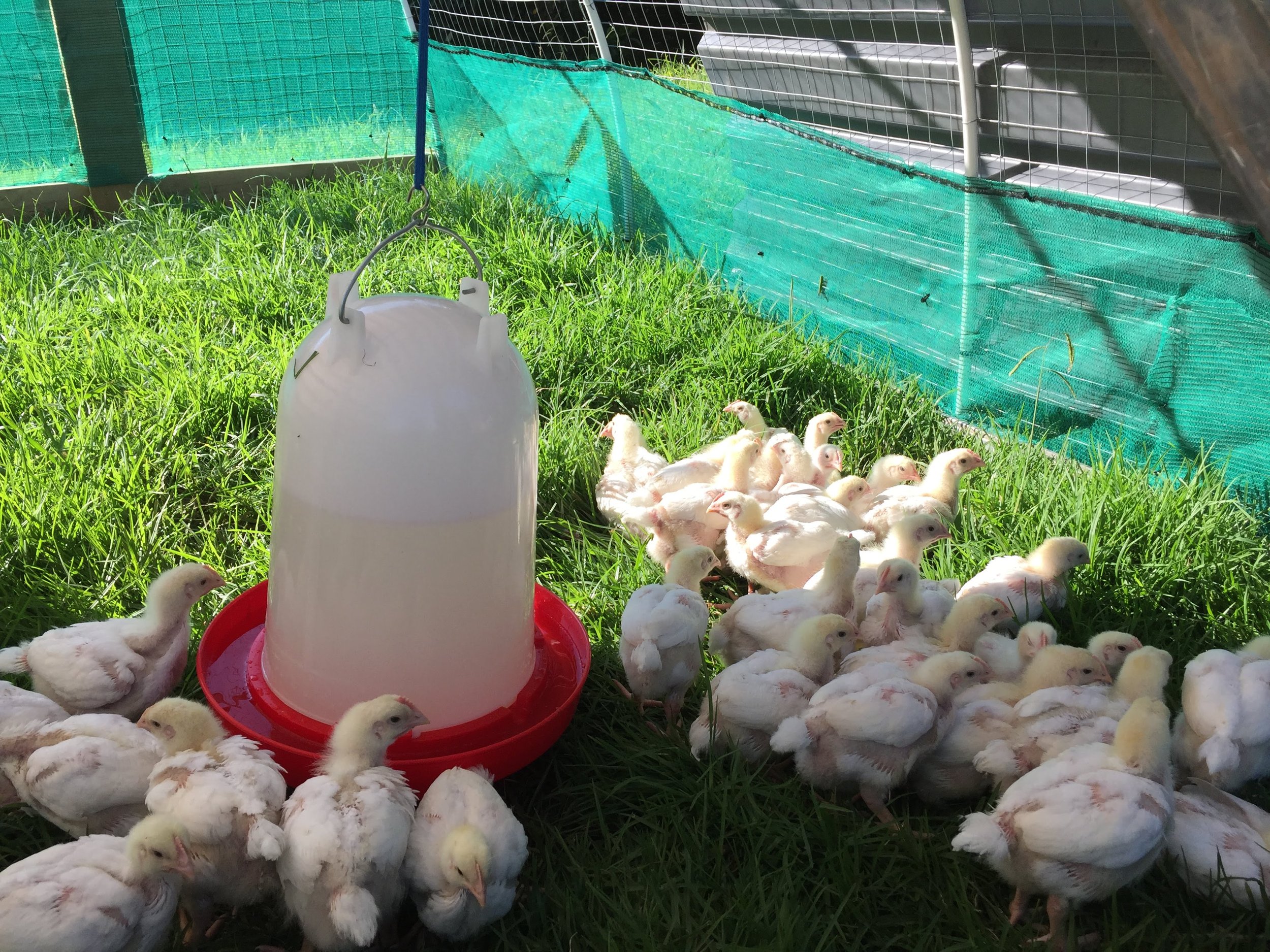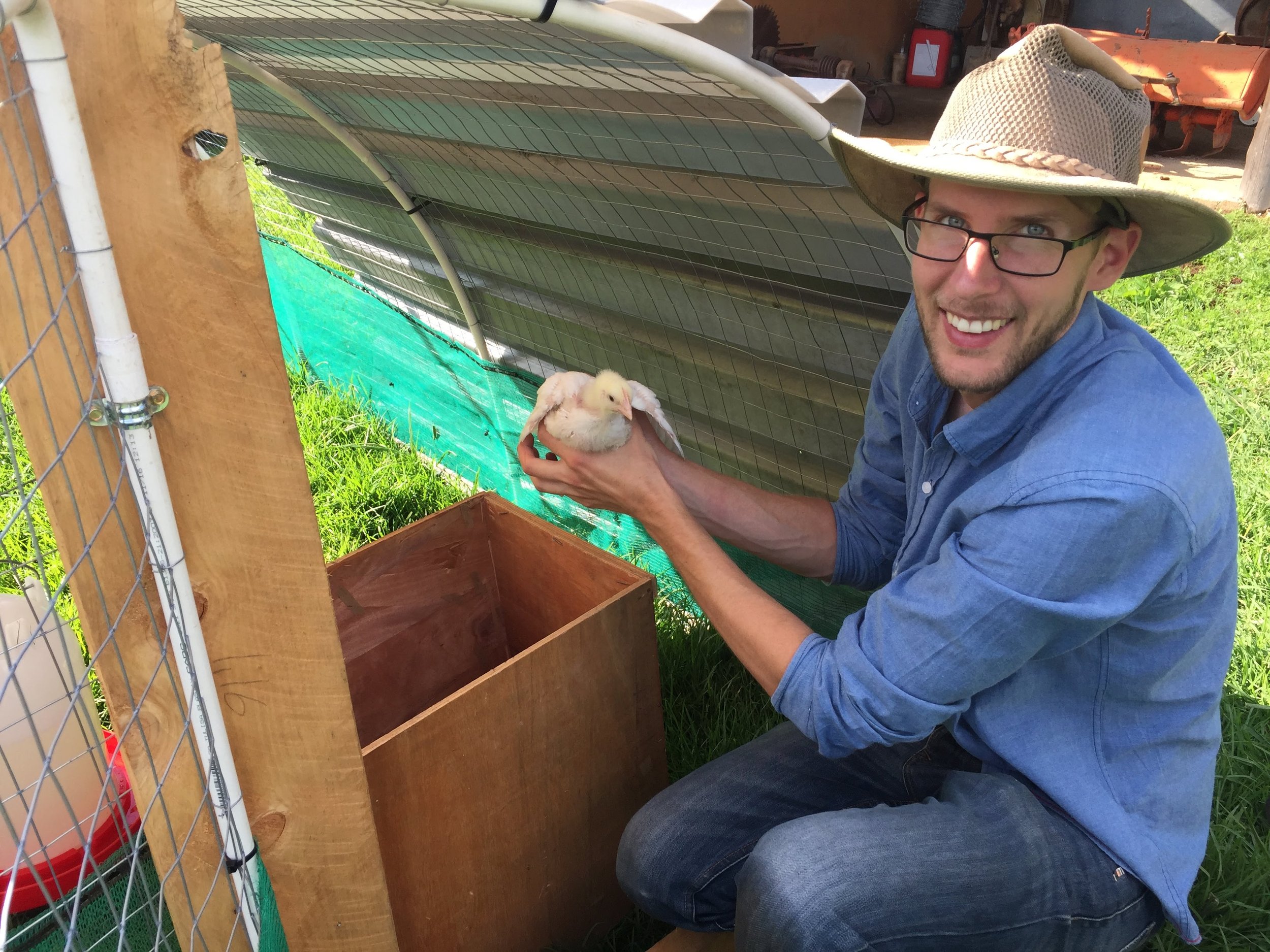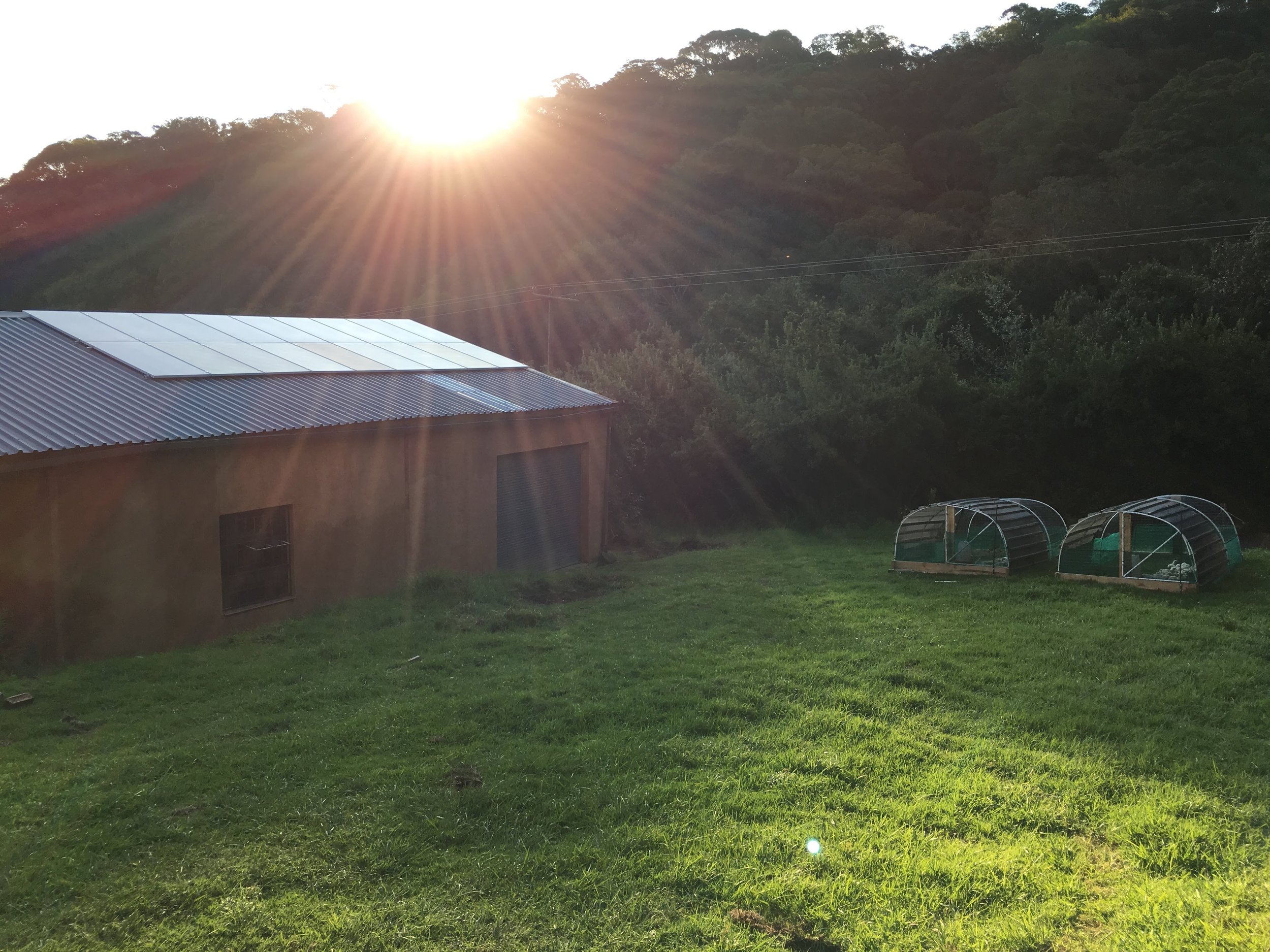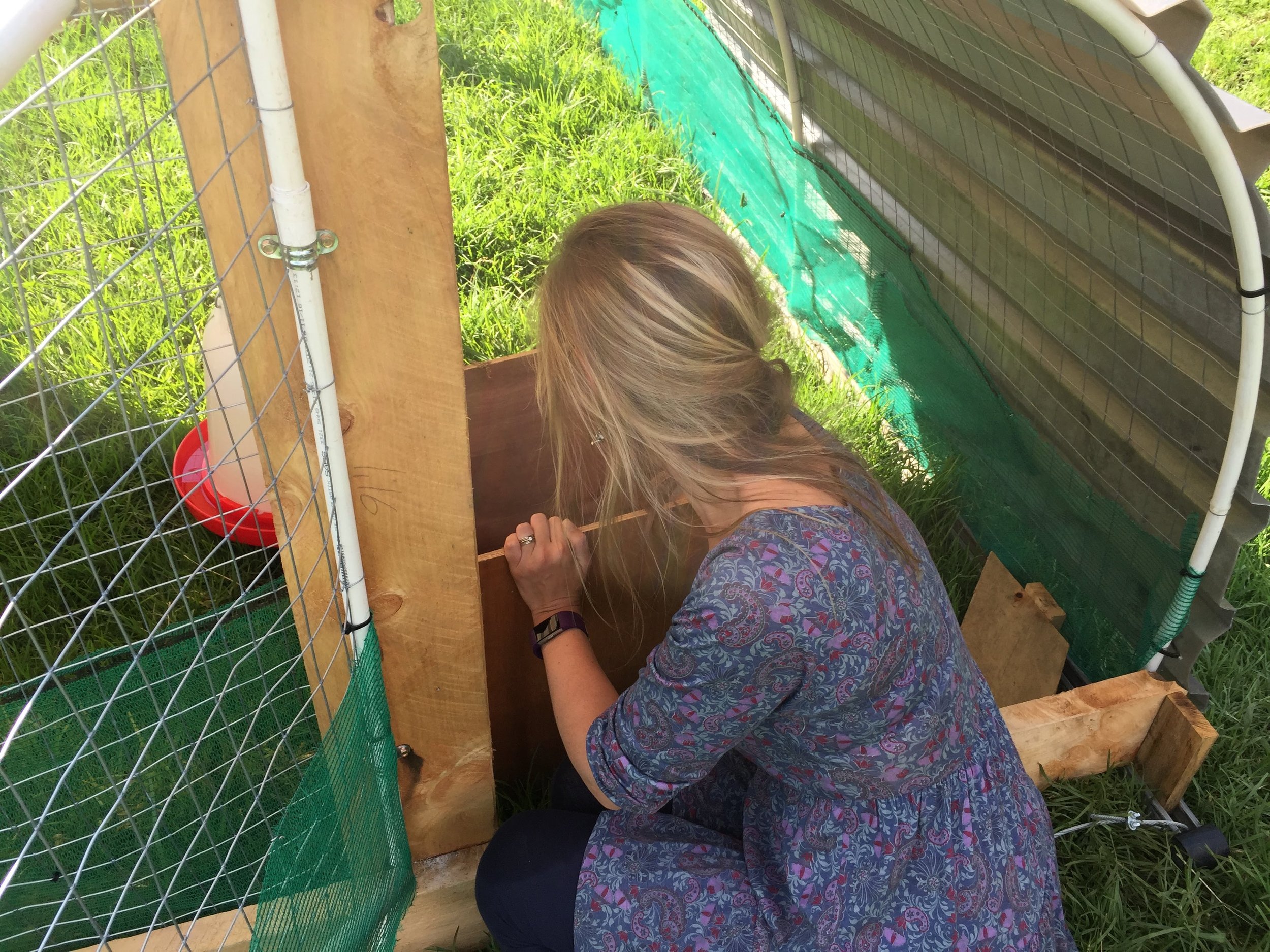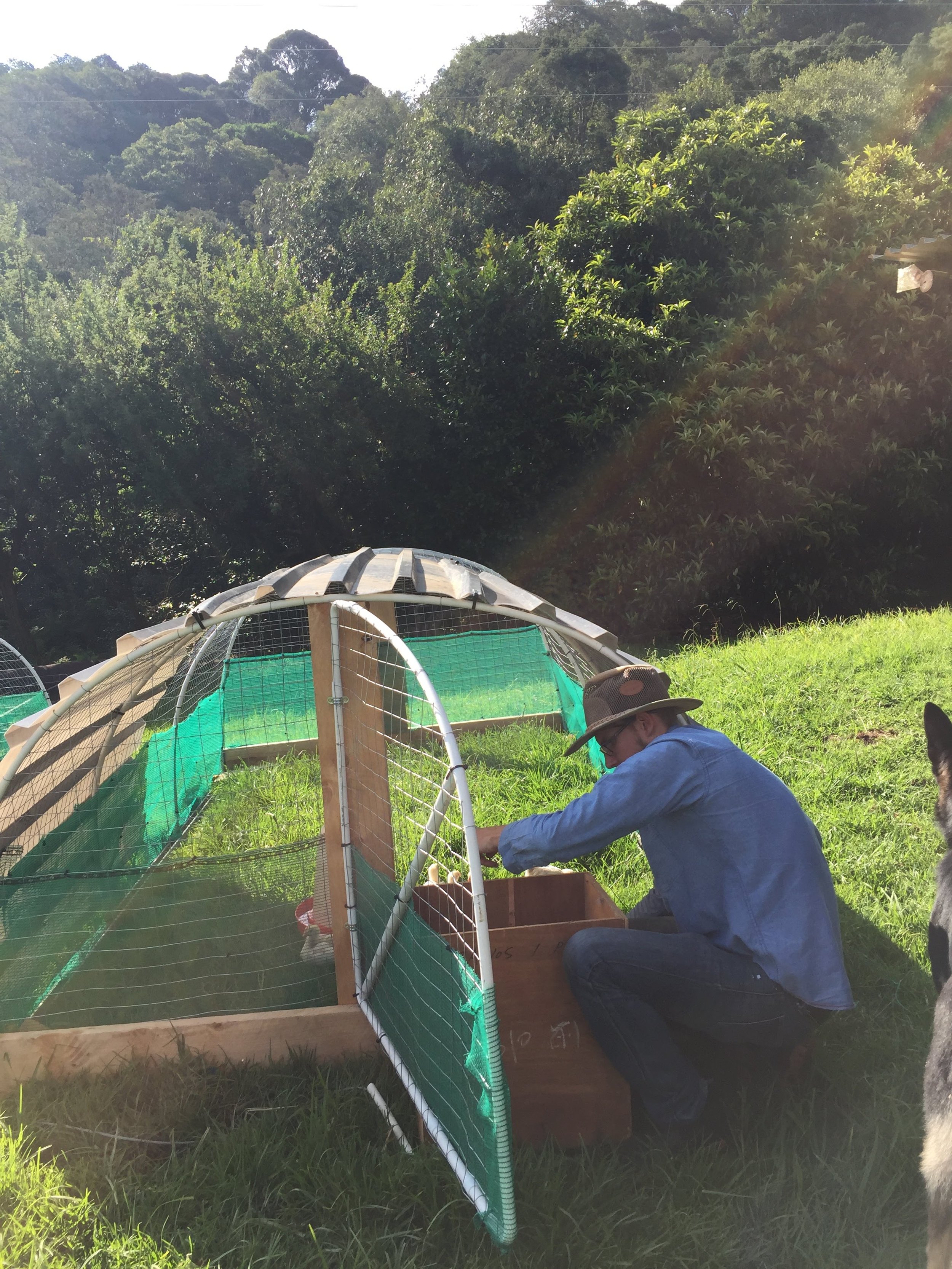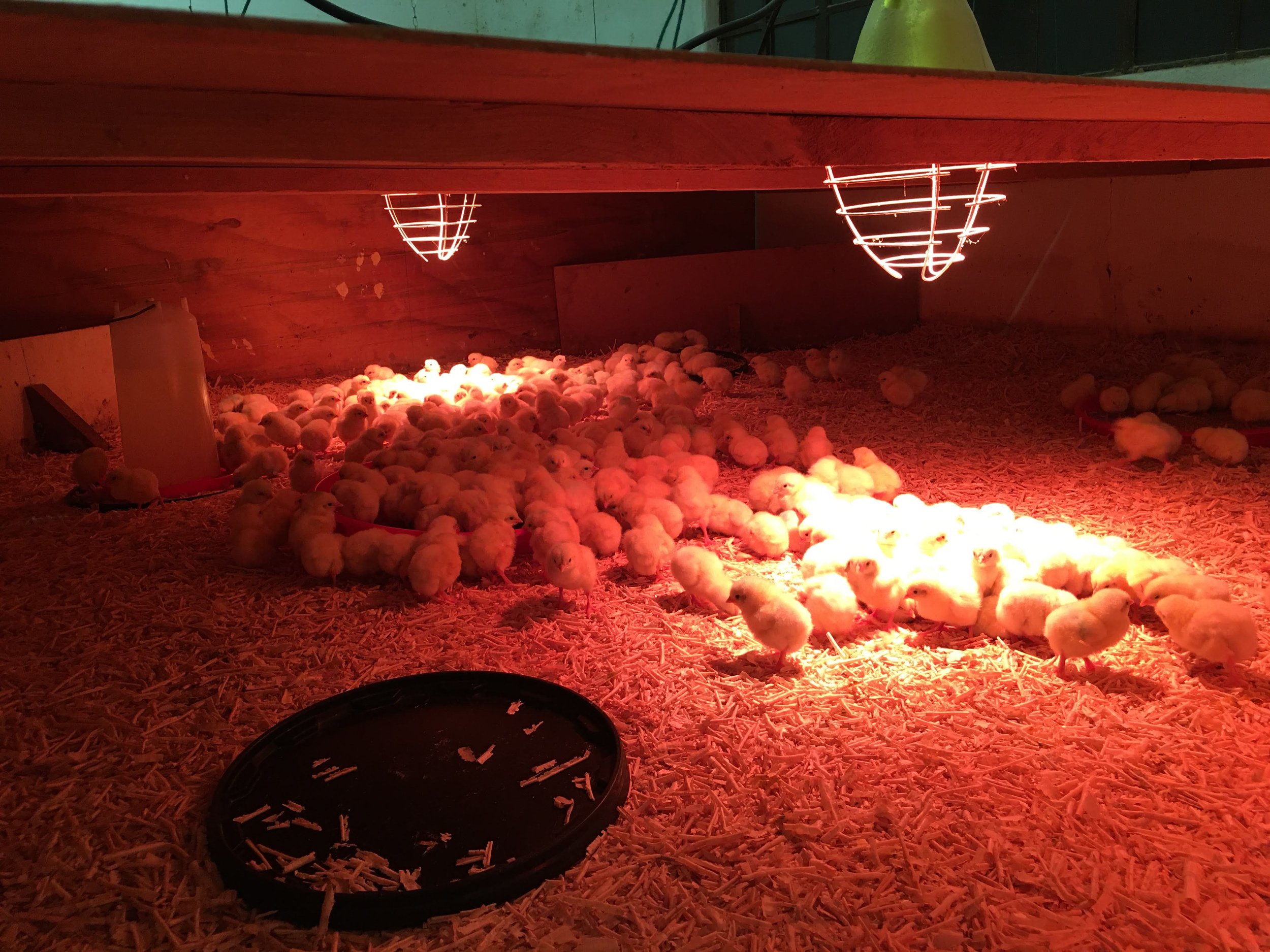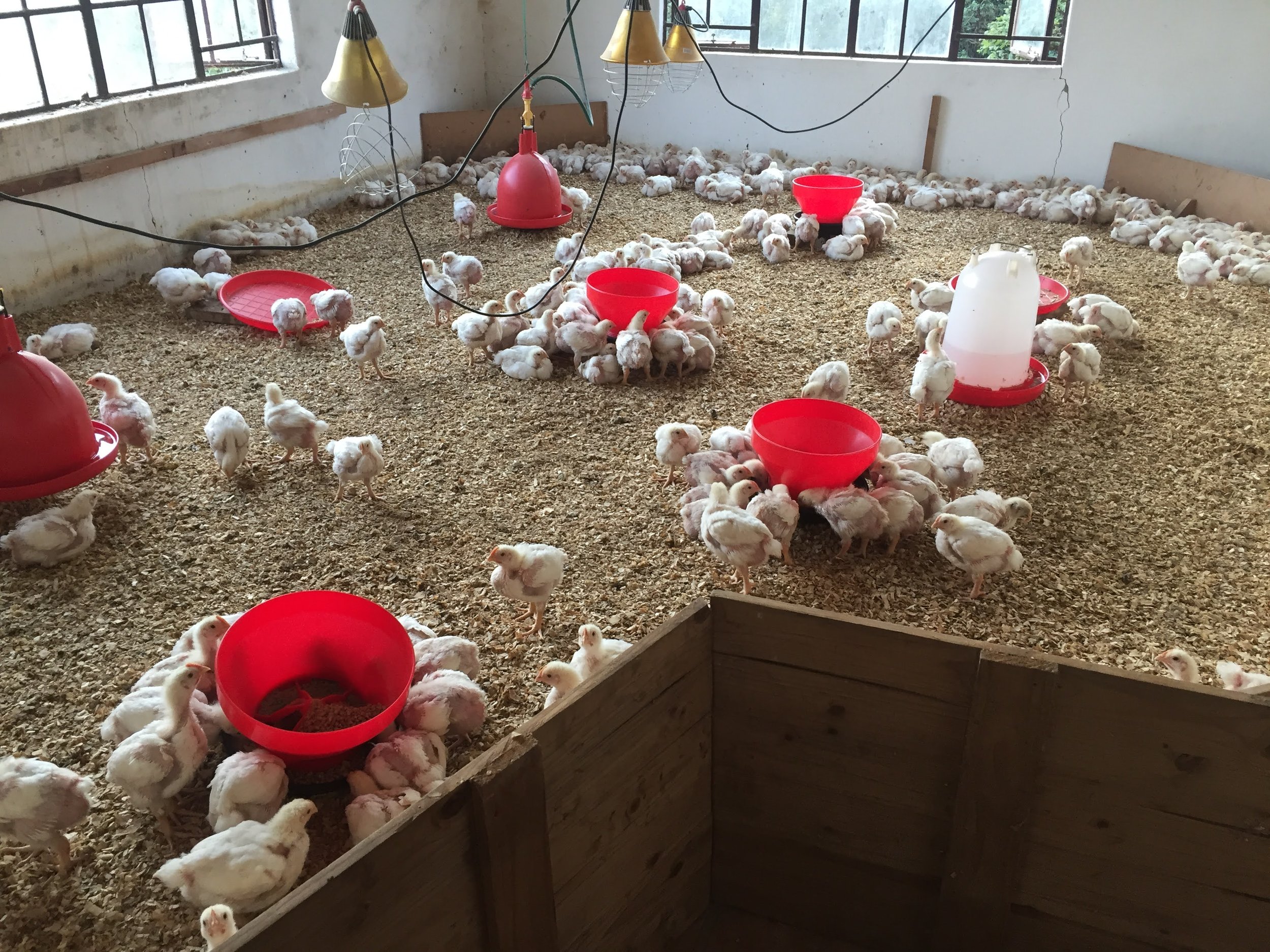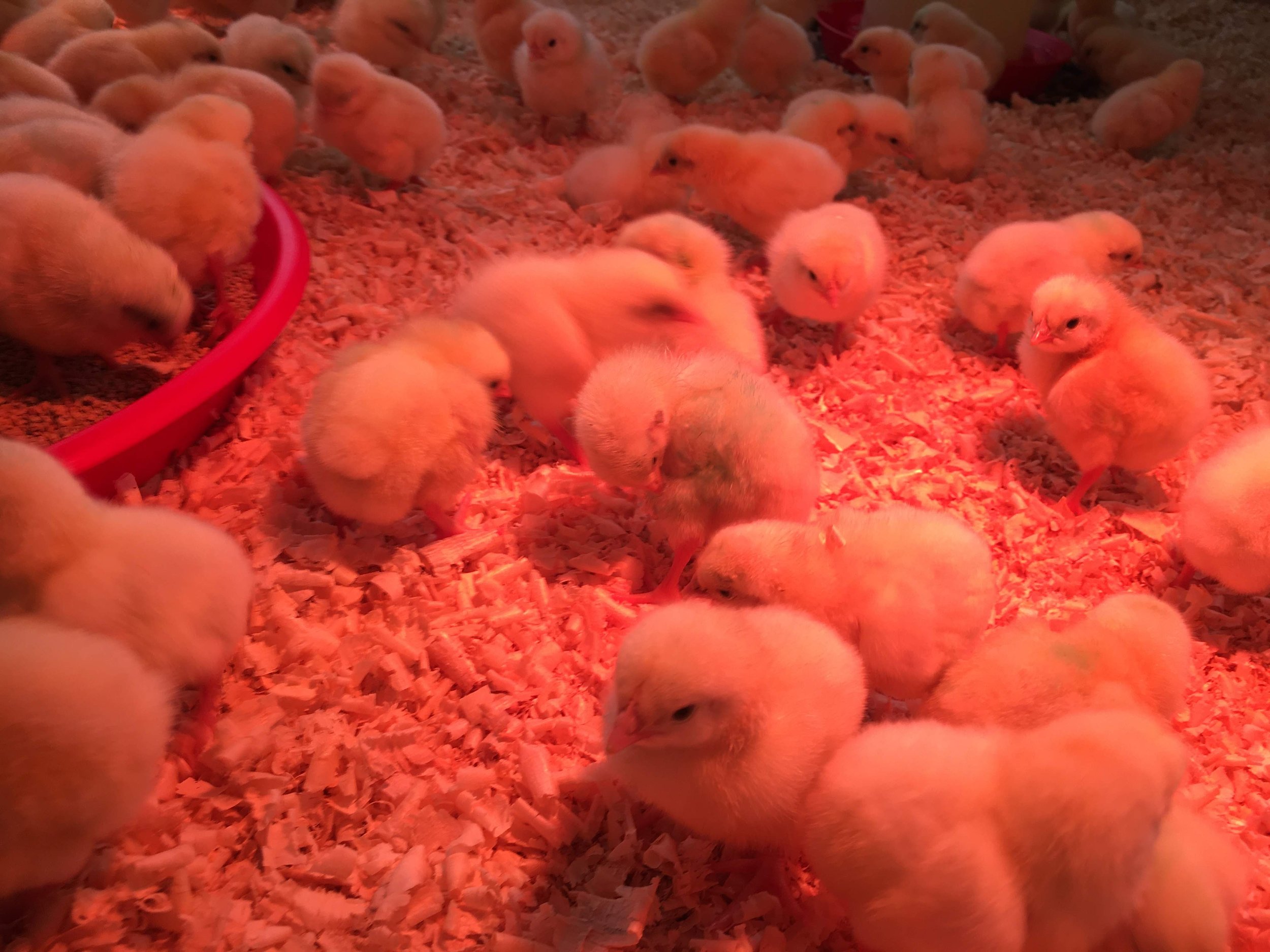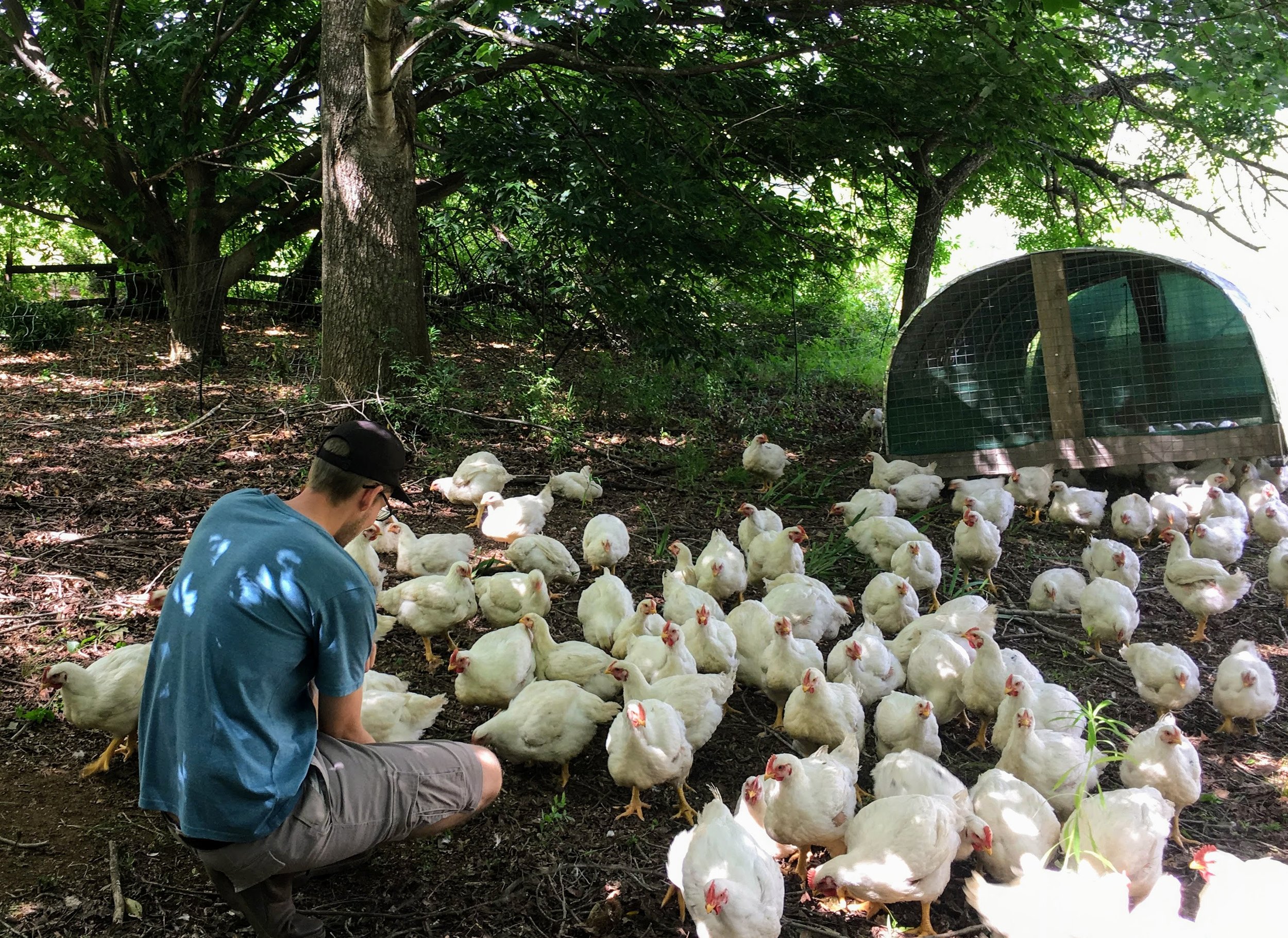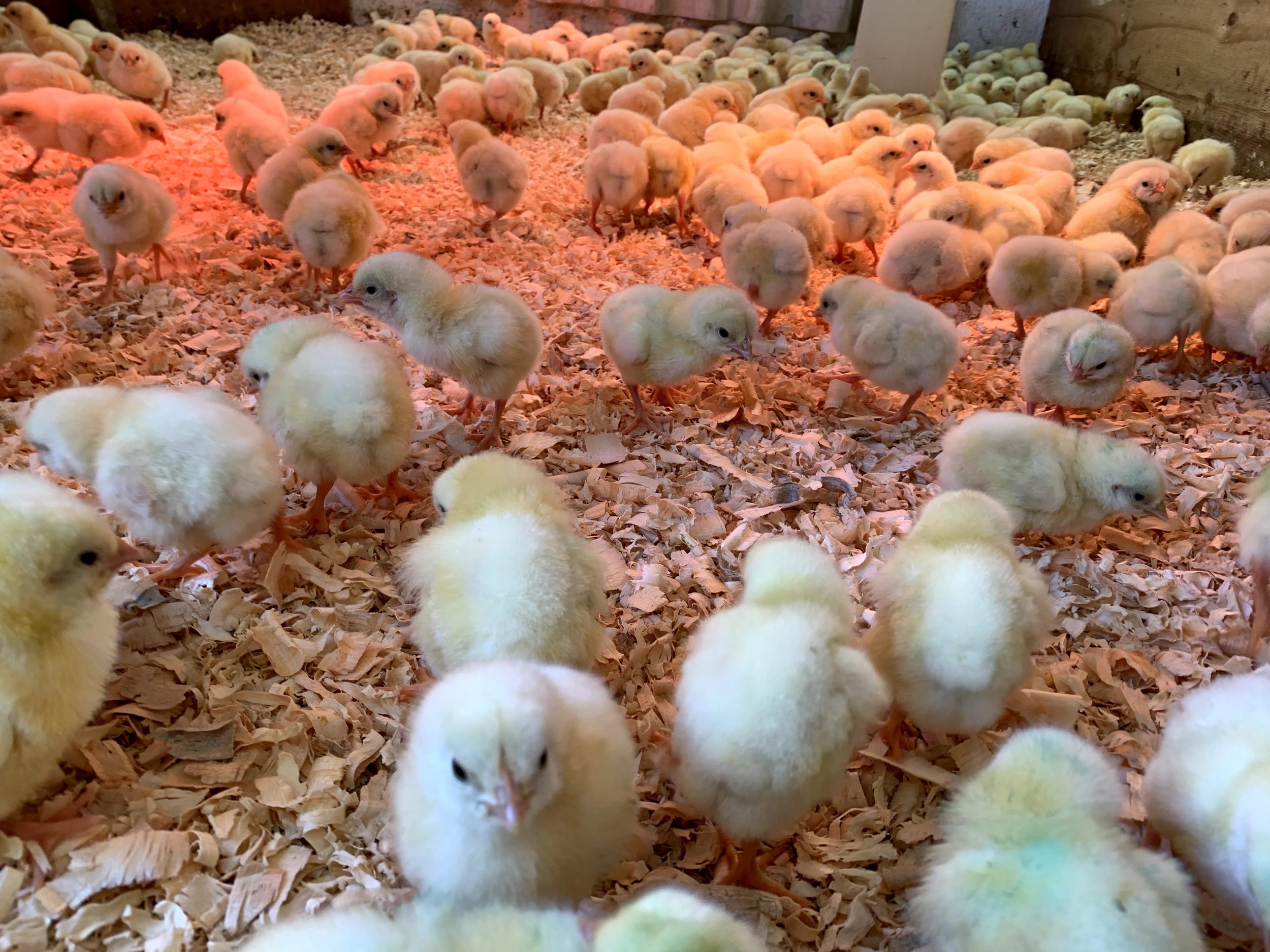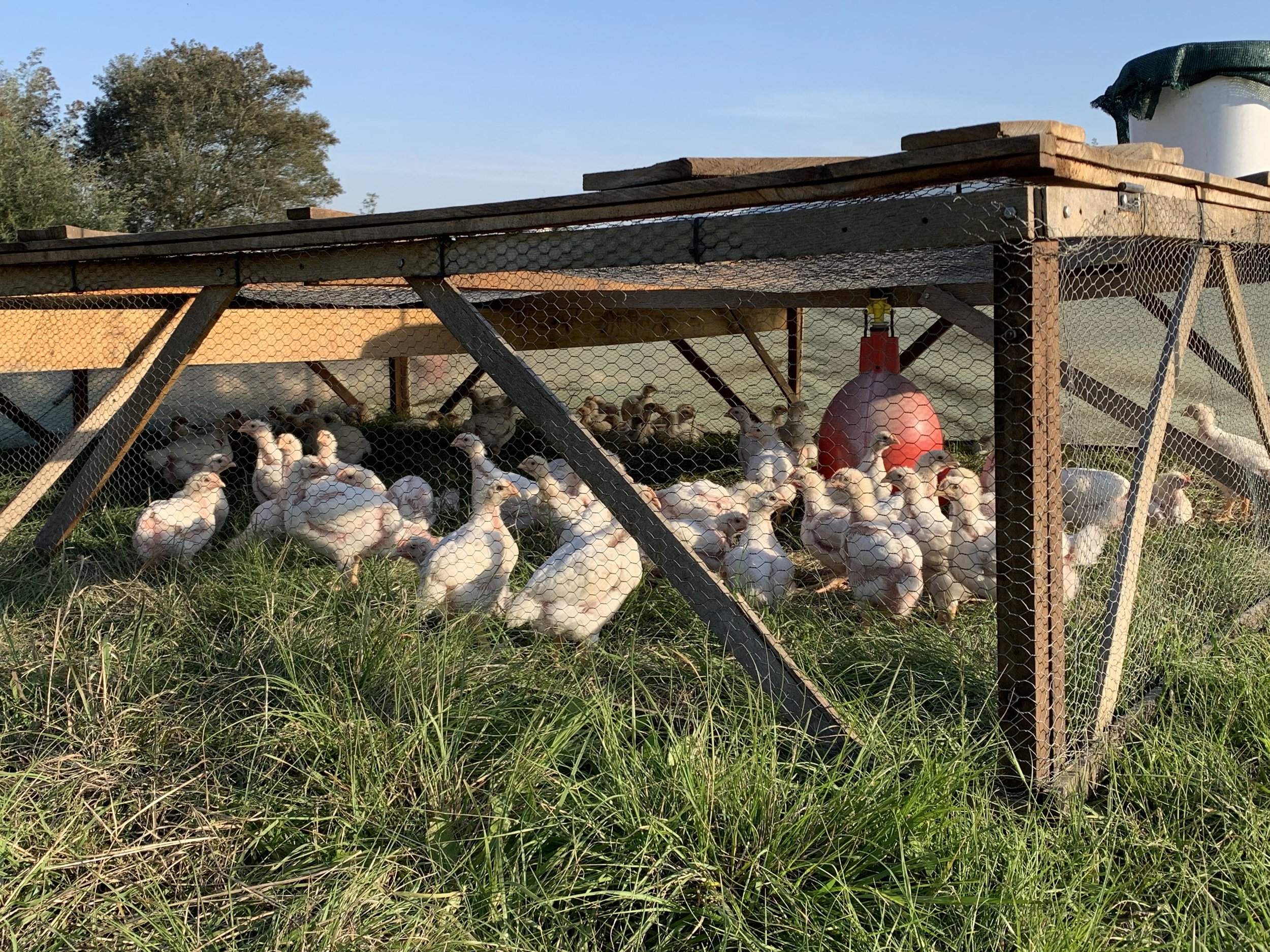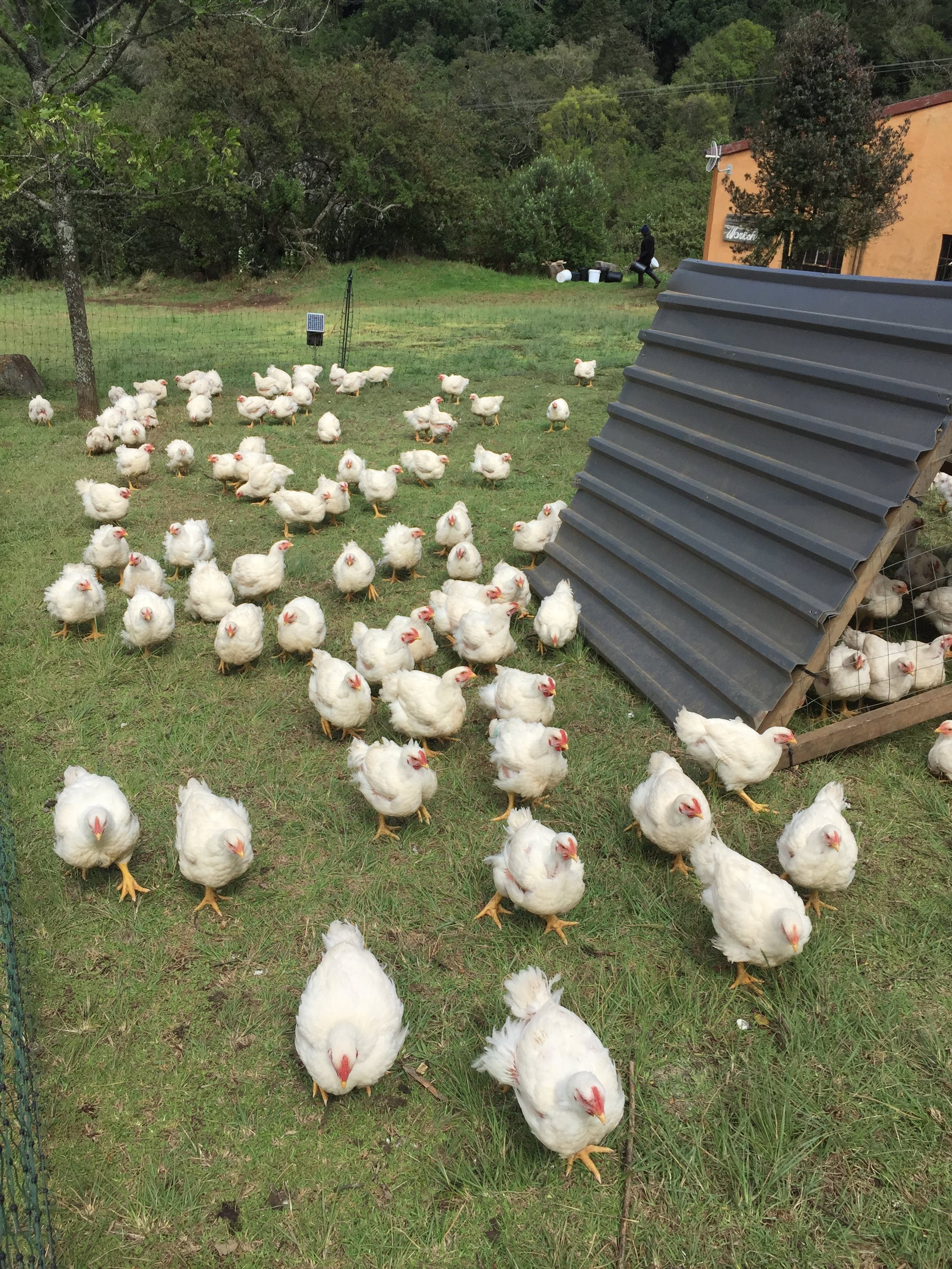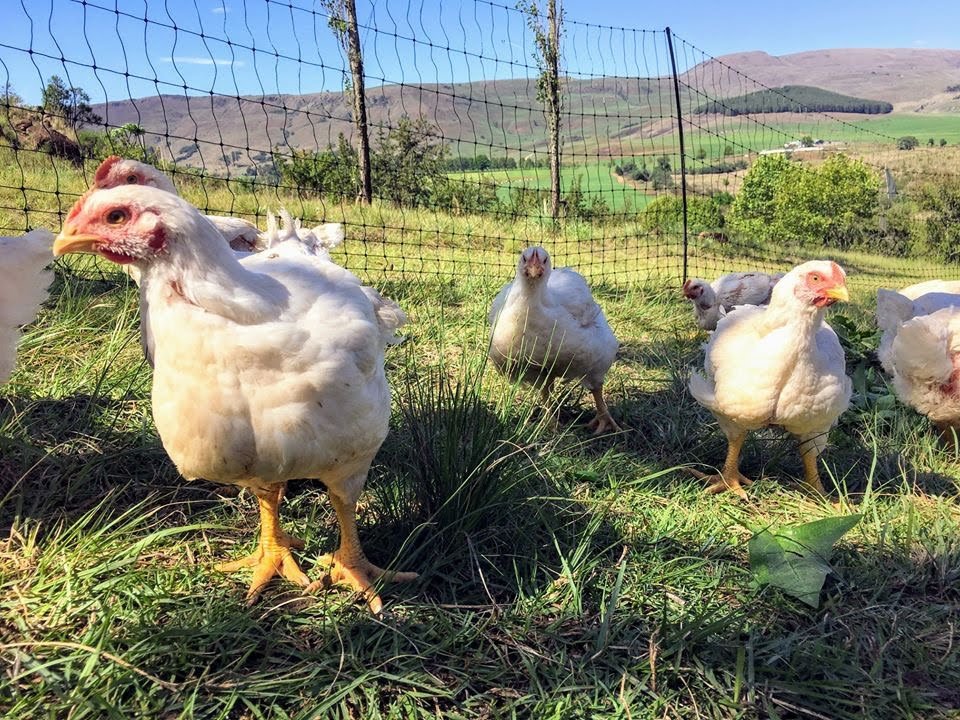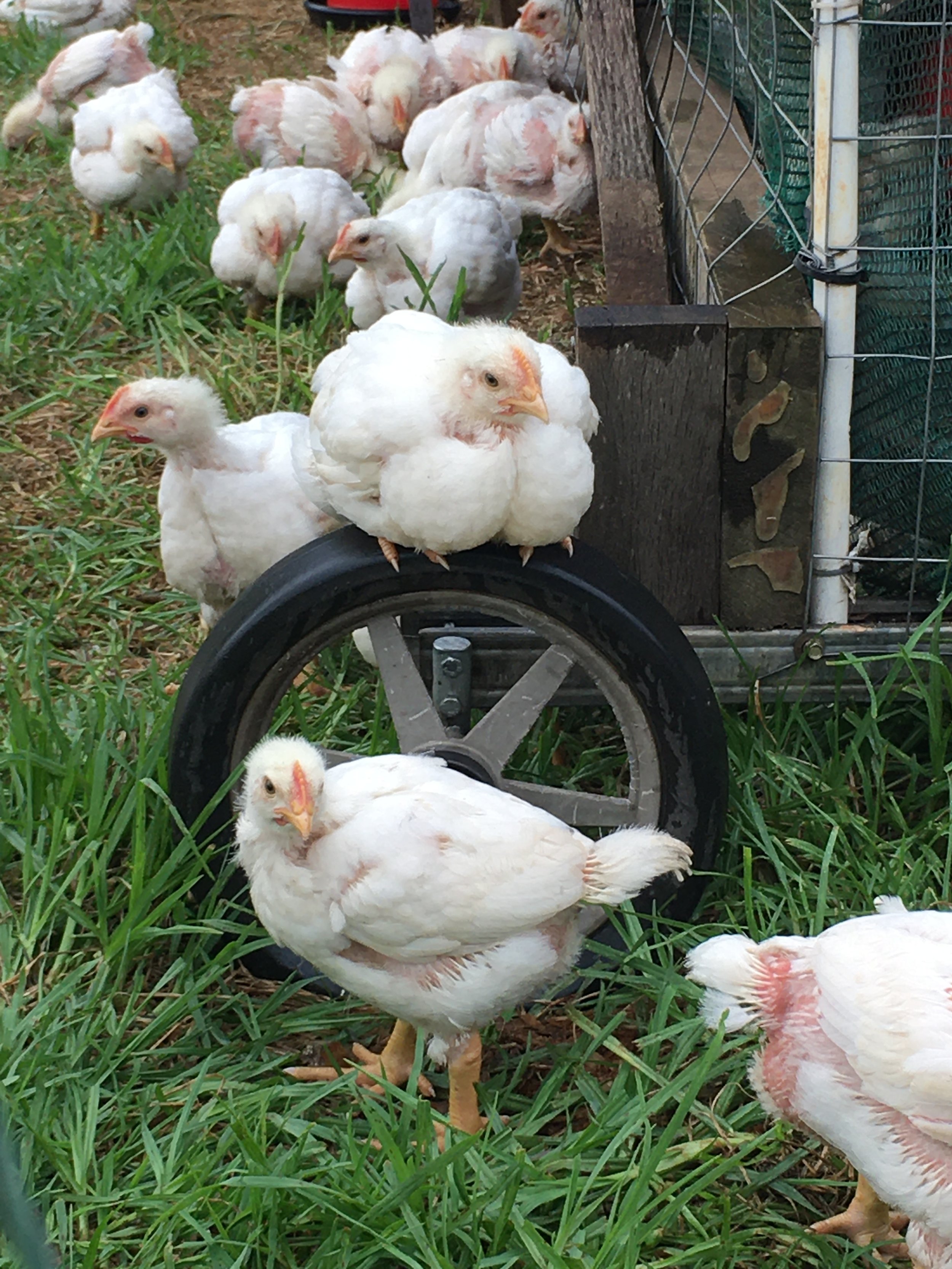What’s going on with our chicken?
What’s going on with our chicken?
A few weeks ago we announced that we are taking a breather from pasture raised chicken. We have had a constant stream of messages, calls, emails and questions so we felt that we owed it to you to explain the background.
In 2018, we excitedly embarked on our pasture raised chicken journey. We have learnt a lot, suffered setbacks, enjoyed success and while still new to this game, we are at a crossroads.
Our terrain has never been ideal for broilers: being on a slope, we have suffered many times from shelters being placed at the wrong angle, birds piling up, and suffocating.
We have tried multiple shelter styles, multiple brooder styles.
From predators such as owls, caracal, goshawk, jackal, and many others helping themselves to tasty morsels.
We have learnt that the closest hatchery to home doesn’t always supply the best quality chicks.
The brooder is the most critical part of raising healthy, strong chickens. From genets to goats breaking into the brooder, overheating, underheating.
Raising fast growing birds at high altitude doesn’t work so well. This we learnt after losing many birds over the years before beginning tests to determine the cause. These birds have been bred to grow as quickly as possible but the heart and lungs don’t keep up with the pace of growth. With the air being so thin at our altitude, we have had to implement many changes to accommodate this, including feeding the birds multiple times a day to prevent overeating. This means driving down to the farm, carting feed, multiple times a day which comes at a heavy labour and fuel cost.
Broilers don’t like cold and wet. If you know anything about the KZN Midlands… well, do we need to say more!
So from a production point of view, we have overcome many challenges.
However, the challenges we face now are out of our sphere.
Our nearest abattoir is an hour and a half away. This is a monumental trip for the birds and requires an entire day off the farm for Andre. The sustainability of this is highly questionable both from a stress on the birds point of view, Andre’s time, and now with increasing fuel costs really tipping the scales. Not to mention that half the N3 has been removed and the chance of getting caught in traffic with live animals increases every time we do the trip, and is a risk we are no longer comfortable taking.
Second to this, the pressure of production has caused our small scale abattoir to have to cram many people into fewer days per week to beat rising costs. Coupled with loadshedding, delays are standard. We have now experienced several times arriving at the abattoir only to have to wait for hours. On one recent occasion, it was stinking hot. This cost the lives of some of our birds. This is utterly horrific and not something we ever want to endure again. After doing everything you can to raise birds ethically and stress free, this is just not acceptable for us.
Thirdly, the rising costs of feed and fuel have impacted this sector enormously. We have taken a massive hit on our margins to the point that we have to question the sustainability of this. The quality of the feed comes with a price tag. We can’t continue taking the hit for this, and economic challenges mean many customers can’t take the increase.
Labour costs are rising and broilers are the most labour intensive project on our farm. It is hard manual work.
We are finding the headspace of managing so many animals, dates, feed, and rotations also becoming too heavy for just the two of us to bear.
However, the rewards are great. To have the opportunity to produce healthy, ethically raised food while benefiting from the immense fertility provided by the broilers has been one of our greatest privileges. Through our pasture raised chicken, we have been able to grow our market and brand, sell retail, make friends, and form many relationships with customers.
So where to from here?
At this point, it is unclear. We pray our way forward.
Either we need to reduce our numbers and keep it local - local feed, local abattoir, find help to manage this project, or change how we do it completely.
We are looking into local options. Supply is questionable.
We are looking into on-farm processing, but it is very expensive to set up a registered facility - and one needs a registration to legally sell meat. We are very far off the beaten track so finding labour to assist just on slaughter days is not an option. So it means our team is stretching even further to incorporate this into our already full schedule.
We are weighing up all of the options. But for now, we need to take a breath, zoom out and assess where we are at. Perhaps the first step is to look at doing it a little differently than we have been and go from there.
So please follow us for updates. We are not throwing in the towel just yet, just assessing. Our goal when starting our farm was to feed our family good quality food. We endeavour to have good quality pasture raised chicken on our table - and yours. One way or another.

